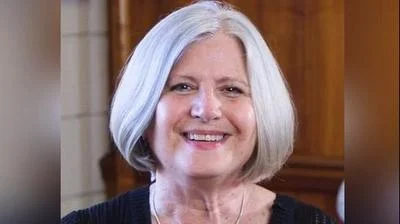The publication is reproduced in full below:
PANDEMIC EFFECTS ON HOME SAFETY AND TOURISM ACT
Mr. PALLONE. Mr. Speaker, I move to suspend the rules and pass the bill (H.R. 3752) to require the Consumer Product Safety Commission to study the effect of the COVID-19 pandemic on injuries and deaths associated with consumer products and to direct the Secretary of Commerce to study and report on the effects of the COVID-19 pandemic on the travel and tourism industry in the United States.
The Clerk read the title of the bill.
The text of the bill is as follows:
H.R. 3752
Be it enacted by the Senate and House of Representatives of the United States of America in Congress assembled,
SECTION 1. SHORT TITLE; TABLE OF CONTENTS.
(a) Short Title.--This Act may be cited as the ``Pandemic Effects on Home Safety and Tourism Act''.
(b) Table of Contents.--The table of contents for this Act is as follows:
Sec. 1. Short title; table of contents.
TITLE I--COVID-19 HOME SAFETY
Sec. 101. Short title.
Sec. 102. Study and report on the effect of the COVID-19 public health emergency on injuries and deaths from consumer products.
TITLE II--PROTECTING TOURISM IN THE UNITED STATES
Sec. 201. Short title.
Sec. 202. Study and report on effects of COVID-19 pandemic on travel and tourism industry in United States.
TITLE I--COVID-19 HOME SAFETY
SEC. 101. SHORT TITLE.
This title may be cited as the ``COVID-19 Home Safety Act''.
SEC. 102. STUDY AND REPORT ON THE EFFECT OF THE COVID-19
PUBLIC HEALTH EMERGENCY ON INJURIES AND DEATHS
FROM CONSUMER PRODUCTS.
(a) COVID-19 Report Required.--Not later than 3 months after the date of enactment of this section and every 3 months thereafter for the duration of the COVID-19 public health emergency, the Consumer Product Safety Commission shall submit to the Committee on Energy and Commerce of the House of Representatives and the Committee on Commerce, Science, and Transportation of the Senate, and make publicly available, a report on the effect of the COVID-19 public health emergency on injuries and deaths from consumer products.
(b) Contents of Report.--The report shall include the following:
(1) Relevant data and statistics from--
(A) the data sources of the Commission;
(B) other appropriate agencies;
(C) media reports;
(D) poison control centers, to the extent practical; and
(E) any other relevant data sources.
(2) An identification of trends in injuries and deaths from consumer products, comparing data from representative time periods before and during the COVID-19 public health emergency.
(3) An identification of subpopulations that have experienced elevated risk of injury or death from consumer products during the COVID-19 public health emergency, such as minorities, infants, people with disabilities, children, or the elderly.
(4) An identification of where most injuries or deaths from consumer products during the COVID-19 public health emergency are taking place, such as the type of building or outdoor environment.
(5) A specification about whether consumer products associated with a substantial number of injuries or deaths during the COVID-19 public health emergency are--
(A) under recall;
(B) subject to a voluntary consumer product safety standard; or
(C) subject to a mandatory consumer product safety standard.
(6) An identification of emerging consumer products that are posing new risks to consumers.
(c) COVID-19 Public Health Emergency Defined.--The term
``COVID-19 public health emergency'' means a public health emergency declared pursuant to section 319 of the Public Health Service Act (42 U.S.C. 247d) as a result of confirmed cases of 2019 novel coronavirus (COVID-19), including any renewal thereof.
TITLE II--PROTECTING TOURISM IN THE UNITED STATES
SEC. 201. SHORT TITLE.
This title may be cited as the ``Protecting Tourism in the United States Act''.
SEC. 202. STUDY AND REPORT ON EFFECTS OF COVID-19 PANDEMIC ON
TRAVEL AND TOURISM INDUSTRY IN UNITED STATES.
(a) In General.--Not later than 1 year after the date of enactment of this Act, the Secretary, in consultation with the United States Travel and Tourism Advisory Board and the head of any other Federal agency the Secretary considers appropriate, shall complete a study on the effects of the COVID-19 pandemic on the travel and tourism industry, including various segments of the travel and tourism industry, such as domestic, international, leisure, business, conventions, meetings, and events.
(b) Matters for Consideration.--In conducting the study required by subsection (a) and the interim study required by subsection (e)(1), the Secretary shall consider--
(1) changes in employment rates in the travel and tourism industry during the pandemic period;
(2) changes in revenues of businesses in the travel and tourism industry during the pandemic period;
(3) changes in employment and sales in industries related to the travel and tourism industry, and changes in contributions of the travel and tourism industry to such related industries, during the pandemic period;
(4) the effects attributable to the changes described in paragraphs (1) through (3) in the travel and tourism industry and such related industries on the overall economy of the United States during the pandemic period and the projected effects of such changes on the overall economy of the United States following the pandemic period; and
(5) any additional matters the Secretary considers appropriate.
(c) Consultation and Public Comment.--In conducting the study required by subsection (a), the Secretary shall--
(1) consult with representatives of--
(A) the small business sector;
(B) the restaurant or food service sector;
(C) the hotel and alternative accommodations sector;
(D) the attractions or recreations sector;
(E) the travel distribution services sector;
(F) destination marketing organizations;
(G) State tourism offices; and
(H) the passenger air, railroad, and rental car sectors; and
(2) provide an opportunity for public comment and advice relevant to conducting the study.
(d) Report to Congress.--Not later than 6 months after the date on which the study required by subsection (a) is completed, the Secretary, in consultation with the United States Travel and Tourism Advisory Board and the head of any other Federal agency the Secretary considers appropriate, shall submit to the Committee on Energy and Commerce of the House of Representatives and the Committee on Commerce, Science, and Transportation of the Senate, and make publicly available on the website of the Department of Commerce, a report that contains--
(1) the results of such study; and
(2) policy recommendations for promoting and assisting the travel and tourism industry.
(e) Interim Study and Report.--Not later than 3 months after the date of enactment of this Act, the Secretary, after consultation with relevant stakeholders, including the United States Travel and Tourism Advisory Board, shall--
(1) complete an interim study, which shall be based on data available at the time when the study is conducted and provide a framework for the study required by subsection (a), on the effects of the COVID-19 pandemic (as of such time) on the travel and tourism industry, including various segments of the travel and tourism industry, such as domestic, international, leisure, business, conventions, meetings, and events; and
(2) submit to the Committee on Energy and Commerce of the House of Representatives and the Committee on Commerce, Science, and Transportation of the Senate, and make publicly available on the website of the Department of Commerce, an interim report that contains the results of the interim study required by paragraph (1).
(f) Definitions.--In this section--
(1) the term ``pandemic period'' has the meaning given the term ``emergency period'' in section 1135(g)(1)(B) of the Social Security Act (42 U.S.C. 1320b-5(g)(1)(B)), excluding any portion of such period after the date that is 1 year after the date of the enactment of this Act;
(2) the term ``Secretary'' means the Secretary of Commerce; and
(3) the term ``travel and tourism industry'' means the travel and tourism industry in the United States.
The SPEAKER pro tempore. Pursuant to the rule, the gentleman from New Jersey (Mr. Pallone) and the gentleman from Kentucky (Mr. Guthrie) each will control 20 minutes.
The Chair recognizes the gentleman from New Jersey.
General Leave
Mr. PALLONE. Mr. Speaker, I ask unanimous consent that all Members may have 5 legislative days in which to revise and extend their remarks and include extraneous material on H.R. 3752.
The SPEAKER pro tempore. Is there objection to the request of the gentleman from New Jersey?
There was no objection.
Mr. PALLONE. Mr. Speaker, I yield myself such time as I may consume.
Mr. Speaker, I rise to speak in support of H.R. 3752.
I begin by thanking Representatives Cardenas, Castor, Davis, and Upton for their leadership on this bill, the Pandemic Effects on Home Safety and Tourism Act.
While there is now light at the end of the tunnel for many Americans, the past 15 months have been unlike any other time in modern history. The COVID-19 pandemic has forced us to spend more time at home and find new indoor and outdoor activities suitable for social distancing, which has resulted in new injury patterns. Keeping track of any new trends in injuries and deaths that might be occurring can help us learn how to keep consumers safer at home now as well as in the future.
This bill will require the Consumer Product Safety Commission to provide quarterly updates to the American public regarding the effects of COVID-19 on home safety, including any emerging threats from either new products or new habits from working and playing at home. This report will assemble data from a variety of sources, including media reports and poison control centers, in addition to the CPSC's traditional data sources.
Initial reports from the CPSC about injuries related to consumer products during COVID-19 are already concerning. For example, hospitalizations related to the ingestion of dangerous button cell batteries rose by 93 percent among young children during the period from March to September 2020, and injuries related to cleaning agents also rose 84 percent.
Continued regular reporting required by this legislation can help parents better identify how to keep their children safe when they need to stay at home. And this bill will also identify communities or groups that may be disproportionately affected so that the CPSC can better target efforts to protect these communities.
Mr. Speaker, I am also pleased that this bill will also help rebuild the tourism and travel industry, which has certainly struggled under the strain of the COVID-19 pandemic. Specifically, this legislation requires the Department of Commerce to conduct a detailed study and report to Congress on the pandemic's effects on the travel industry, including on jobs and revenue. And this information will be helpful in determining how we can best direct assistance to the 16 million American workers and families who rely on the jobs the travel industry supports.
Mr. Speaker, I thank our Ranking Member Rodgers, and our Consumer Protection and Commerce Subcommittee Ranking Member Bilirakis, for working with us to build bipartisan support. And, of course, I also thank the chairwoman of this subcommittee, the gentlewoman from Illinois (Ms. Schakowsky).
Mr. Speaker, I call on my colleagues to support this bill, and I reserve the balance of my time.
Mr. GUTHRIE. Mr. Speaker, I yield myself such time as I may consume.
Mr. Speaker, I rise today in strong support of H.R. 3752, the Pandemic Effects on Home Safety and Tourism Act.
I first thank Representatives Cardenas and Davis for their efforts on this bill to protect consumers. I also thank Representatives Upton and Castor for including provisions to promote and assist our tourism industry, an essential component of our Nation's economy, and something I care deeply about as cochair of the Congressional Tourism Caucus.
Mr. Speaker, H.R. 3752 directs the Consumer Product Safety Commission to report on trends of injuries and deaths from consumer products during the COVID-19 pandemic. As more Americans have spent time in their homes, it is important the CPSC continues to inform consumers with information about potentially hazardous products.
Additionally, H.R. 3752 requires the Department of Commerce to study and report on how the COVID-19 pandemic has impacted our travel and tourism industry. This industry plays a significant role in many local communities and supports over 50 million jobs across the Nation.
Mr. Speaker, I urge my colleagues to support this bill, and I reserve the balance of my time.
Mr. PALLONE. Mr. Speaker, I yield such time as she may consume to the gentlewoman from Illinois (Ms. Schakowsky), the chairwoman of the subcommittee.
I also want to say that she is really our superhero when it comes to these consumer issues, always looking out for things, because as the world changes, we have to constantly be vigilant. And that, she certainly is.
Ms. SCHAKOWSKY. Mr. Speaker, I thank the chairman for yielding and for his kind words.
I also thank the authors of this legislation, Representatives Cardenas, Davis, Castor, and Upton, a bipartisan leadership group on this legislation.
And I also thank the ranking member of the subcommittee, Mr. Bilirakis, for his cooperation on this and so many other issues.
Mr. Speaker, children are particularly vulnerable to risks associated with household consumer products. These risks have been magnified by the pandemic as families spend more time at home and parents juggle working from home and supervising children.
This legislation will direct the Consumer Product Safety Commission to study and report injuries and deaths associated with consumer products during the pandemic. A lot of progress has been made, but the pandemic is not yet over.
Americans deserve up-to-date information about emerging threats to the safety of their children, and so this legislation is very important.
This legislation also directs the Department of Commerce to study and report to the Congress on the impact of the pandemic on the travel and tourism industries.
These industries were really hit hard by the pandemic. Over 15.7 million Americans work in travel or tourism. Many of these jobs are just now starting to come back. Industries that depend on travel or tourism like the arts, live events, hotels, and restaurants are still hurting. We must understand the full impact of the pandemic on travel and tourism so that we can help these industries to be able to build back better.
Mr. GUTHRIE. Mr. Speaker, I encourage my colleagues to vote for this bill. I think it is a good bill, and I yield back the balance of my time.
Mr. PALLONE. Mr. Speaker, I also urge bipartisan support for this bill, and I yield back the balance of my time.
The SPEAKER pro tempore. The question is on the motion offered by the gentleman from New Jersey (Mr. Pallone) that the House suspend the rules and pass the bill, H.R. 3752.
The question was taken.
The SPEAKER pro tempore. In the opinion of the Chair, two-thirds being in the affirmative, the ayes have it.
MR. ROSENDALE. Mr. Speaker, on that I demand the yeas and nays.
The SPEAKER pro tempore. Pursuant to section 3(s) of House Resolution 8, the yeas and nays are ordered.
Pursuant to clause 8 of rule XX, further proceedings on this motion are postponed.
____________________
SOURCE: Congressional Record Vol. 167, No. 108
The Congressional Record is a unique source of public documentation. It started in 1873, documenting nearly all the major and minor policies being discussed and debated.
House Representatives' salaries are historically higher than the median US income.




 Alerts Sign-up
Alerts Sign-up